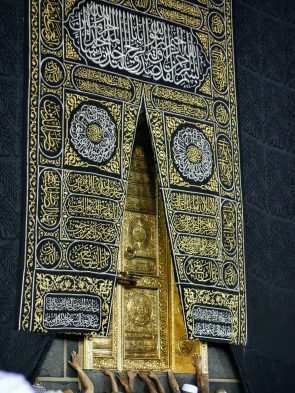Many Muslims long for the opportunity to visit the holy city of Makkah to complete the sacred pilgrimage (Hajj). The global pandemic upended plans for millions throughout the world and made it impossible and unsafe to travel to Makkah to complete this once-in-a-lifetime journey. During the rise of the pandemic, it was humbling and surreal for the Muslim world to see the sacred space of the Ka’ba emptied, without lines of pilgrims completing their circumambulation (tawaf) and praising Allah.
But for the believer, every adversity is a test of faith. The shutdown of the world, and in particular, the ability to travel for Hajj, is an opportunity for Muslims to reflect on their priorities and to refocus their worship.
The month of Dhul Hijjah is a time of great spiritual importance for Muslims. It is a powerful reminder of the sacrifice put forth by Prophet Ibrahim, as he left Hajar and Ismail in the barren desert, simply because Allah commanded him to do so. It is up to us to avail the blessings of these days to challenge our inner self (nafs), subdue our egos and increase our remembrance of Allah (dhikr).
The first ten days and nights of Dhul Hijjah are considered to be of particular significance and merit. Abdullah ibn Abbas (may Allah be pleased with him) relates that the Messenger of Allah (may Allah bless him and give him peace) said, “There are no days in which righteous acts are more beloved to Allah than in these days – meaning the ten of Dhul Hijjah.” They asked, “O Messenger of Allah, not even Jihad in the way of Allah?” He replied, “Not even Jihad in the way of Allah, except for the man who goes out with his life and his wealth and does not return with either of them.” (Bukhari, Tirmidhi, Abu Dawud)
It is highly encouraged to carry out as many acts of worship as possible to take advantage of the immense reward inherent in these days.
Fasting
It is recommended (mustahabb) to fast during the first nine days of Dhul Hijjah. Fasting on the 9th of Dhul Hijjah, the Day of Arafah, is especially significant. (Al Siraj al Wahhaj)
Abu Qatadah (may Allah be pleased with him) is reported to have said that the Prophet (may Allah bless him and give him peace) said, “Fasting on the day of Arafah is an expiation (of sins) for two years, the year preceding it and the year following it.” (Ibn Majah)
Prayer
While the Taraweeh prayers are reserved for the month of Ramadan, extra supererogatory (nawafil) prayers are a year round opportunity. If you have qada to make up, this time is great to begin a regular habit. Make an extra effort to wake up for Tahajjud during this blessed month.
Sacrificing an Animal
It is an established Sunnah to sacrifice an animal on Eid day. It is recommended (mustahabb) for the one who intends to make a sacrificial slaughter (qurbani) to not remove hair or nails from the 1st of Dhul Hijjah until after the qurbani is slaughtered (Tirmidhi). The purpose of this is to emulate the pilgrim (Haji).
Dhikr
From after Fajr on the 9th of Dhul Hijjah until after Asr on the 13th, one must recite the takbeer after praying each obligatory (fard) prayer. Even if a woman cannot pray on these days, she can always opt for other forms of dhikr. Increasing seeking forgiveness (istighfar) and sending salutations (salawat) are opportunities everyone can and should take advantage of, especially during the first ten days and nights of Dhul Hijjah. For more ideas on how one can maximise on her good deeds even when she cannot pray or fast, see this post.
May Allah allow us to enter and maximise on these blessed days and come out better than we were before. Ameen.





